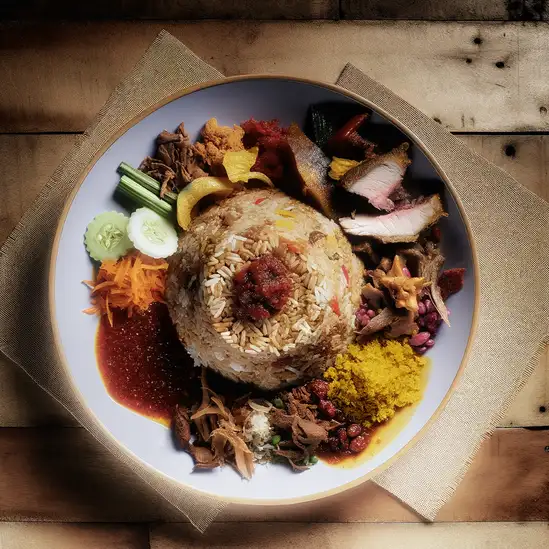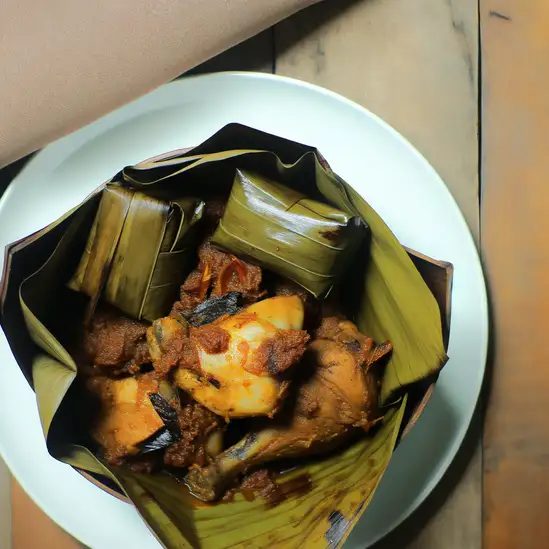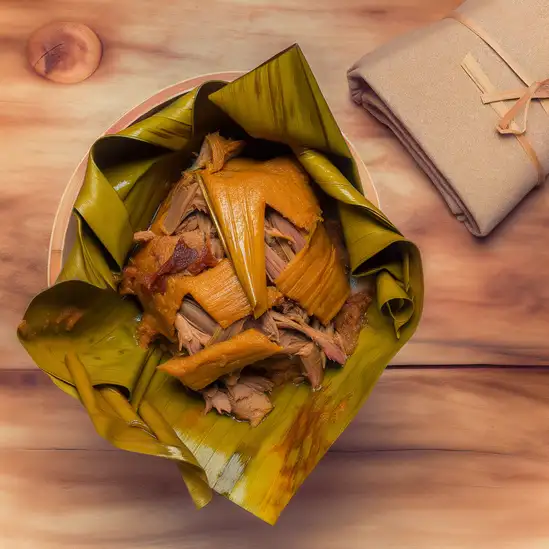


If you’re dreaming of a place where the ocean breeze carries the scent of sizzling seafood and the sky melts into shades of pink and gold at sunset,Jimbaran is where you want to be. This coastal town in Bali has this laid-back charm that instantly makes you slow down and soak in the moment. Imagine walking along a stretch of soft sand,the gentle waves lapping at your feet,while local fishermen haul in their catch just a few steps away. The air is filled with the smoky aroma of fresh fish grilling over open flames,mingling with the salty sea air—it’s like the whole town is inviting you to a feast by the beach. What really makes Jimbaran special is its blend of authentic Balinese culture and the warmth of its people. The local markets buzz with vibrant colors and lively chatter,where you can find everything from handwoven textiles to fragrant spices. At night,the beachfront transforms into a cozy dining spot with candlelit tables right on the sand. You’ll hear the soft strumming of guitars and the occasional laughter drifting over the waves,creating a soundtrack that feels both intimate and timeless. Beyond the food and the views,Jimbaran has this genuine,unpretentious vibe. It’s not about flashy resorts or crowded tourist traps—it’s about savoring simple pleasures:a fresh coconut in your hand,the sun warming your skin,and the feeling that you’ve stumbled upon a place where time slows just enough for you to catch your breath and truly live in the moment.
The information on this page is currently being reviewed by Tripkliq and should be used as a guide only
Eng word: Hello
Eng pronunciation: HAH-loh
Local language: Halo
Eng word: Goodbye
Eng pronunciation: suh-LAH-maht TING-gahl
Local language: Selamat tinggal
Eng word: Thank you
Eng pronunciation: teh-REE-mah KAH-see
Local language: Terima kasih
Eng word: How much
Eng pronunciation: buh-RAH-pah
Local language: Berapa
Eng word: Toilet
Eng pronunciation: TOY-let
Local language: Toilet
Eng word: Help me
Eng pronunciation: TOH-long SAH-yah
Local language: Tolong saya
Eng word: Yes
Eng pronunciation: YAH
Local language: Ya
Eng word: No
Eng pronunciation: TEE-dahk
Local language: Tidak
Eng word: Excuse me
Eng pronunciation: puhr-MEE-see
Local language: Permisi
Historically, Jimbaran was a small fishing village, where the local community’s main livelihood was derived from the sea. Its transformation into a sought-after tourist destination maintains a deep connection to its maritime roots.
The village was under the rule of the Denpasar kingdom, with the Puri Jimbaran, or royal palace, playing a crucial role in the area's governance and cultural development, bridging the past and present through its preserved heritage.
Jimbaran's history is marked by a rich blend of Balinese culture with influences from Java and other Indonesian islands, reflecting through its unique architecture, cuisine, and ceremonies.
The tradition of seafood in Jimbaran dates back centuries, evolving into the renowned beachside seafood barbecue dinners that attract visitors from around the world today.
Jimbaran Bay has been a strategic maritime point since ancient times, facilitating trade and cultural exchanges between Bali and other parts of Indonesia, as well as international territories.
Salt farming in Jimbaran has historical roots, with generations of families utilizing traditional methods to harvest salt from the sea, a practice that continues to some extent today, embodying the city’s enduring connection to the ocean.
The development of the tourism sector in Jimbaran began to accelerate in the 1980s, transforming the area into a hub for luxury resorts and villas while preserving its cultural and environmental assets.
Jimbaran is home to a longstanding tradition of ceramic art, with local artisans drawing from ancient techniques to create pieces that reflect both historical significance and contemporary design.
An integral part of Jimbaran's cultural heritage, the Nyegara Gunung ceremony symbolizes the connection between the sea (Nyegara) and the mountains (Gunung), showcasing the spiritual harmony cherished by the local community.
In Jimbaran, the most common Power Adaptor is Type C, Type F.



Minced meat (usually fish or chicken) mixed with grated coconut and spices, wrapped around bamboo sticks and grilled.

A mixed rice dish served with a variety of side dishes, including meats, vegetables, and sambal, showcasing the local flavors.

Spiced chicken that is marinated and then wrapped in banana leaves before being slow-cooked, resulting in a rich and aromatic dish.

Slow-cooked duck stuffed with traditional spices and wrapped in banana leaves, resulting in tender and flavorful meat.

Freshly caught fish marinated in a blend of spices and grilled over an open flame, often served with sambal and rice.
If you ever find yourself craving a place where time slows down just enough to savor every moment,Ubud is that kind of sanctuary. Nestled in the lush heart of Bali,this town hums with a gentle rhythm—part spiritual retreat,part creative hub. Walking through its streets,you’ll catch the scent of frangipani and incense mingling with the earthy aroma of wet rice fields nearby. The air feels alive,filled with the soft chatter of locals,the distant clink of gamelan music,and the occasional call of a rooster greeting the dawn.
Ubud’s charm lies in its seamless blend of tradition and artistry. Temples with intricate stone carvings peek through vibrant greenery,while open-air markets burst with colorful textiles,hand-carved masks,and fresh tropical fruits. You can sip on a rich,earthy cup of Balinese coffee at a cozy café,watching artisans craft delicate silver jewelry or dancers rehearsing for an evening performance. It’s a place where culture isn’t just observed—it’s lived and breathed.
What really stays with you is the warmth of the people and the sense of connection to nature and spirit. Whether you’re wandering through the terraced rice paddies,joining a yoga class overlooking the jungle,or simply sitting by the Campuhan Ridge Trail at sunset,Ubud invites you to slow down,breathe deeply,and soak in a world that feels both ancient and vibrantly alive.
Imagine stepping into a place where the sun kisses your skin,the ocean hums a steady rhythm,and the air carries the scent of salty waves mixed with sizzling street food. That’s Kuta for you—a lively beach town in Bali that pulses with energy but still feels effortlessly laid-back. From the moment you arrive,you’re wrapped in a warm,welcoming vibe that’s both vibrant and relaxed. The beach stretches wide,dotted with surfers catching waves and locals selling fresh coconut water,while the sunset paints the sky in fiery oranges and pinks.
Walking through Kuta’s streets,you’ll hear a blend of languages,laughter,and the occasional beat of gamelan music drifting from a nearby warung. The town’s character is a colorful mix of traditional Balinese culture and a buzzing international crowd,creating a unique atmosphere where ancient temples sit just blocks away from lively markets and buzzing nightlife. The aroma of satay grilling over open flames mingles with the tropical flowers blooming nearby,inviting you to slow down and savor every moment.
What makes Kuta truly special is how it balances excitement with ease. Whether you’re learning to surf,bargaining for handmade crafts,or simply lounging on the beach with a fresh mango smoothie in hand,there’s a genuine warmth in the air. It’s a place that invites you to dive into its rhythm,soak up its stories,and leave with a heart full of memories and a little more sun-kissed than when you arrived.
If you find yourself wandering through Kota Denpasar,you’ll immediately notice its lively heartbeat—a city that hums with everyday life yet carries a deep cultural rhythm beneath the surface. It’s not the polished tourist hub like southern Bali,but that’s exactly what makes it so captivating. The streets buzz with scooters weaving through markets where the scent of fresh spices mingles with the earthy aroma of tropical fruits. Vendors call out in warm,melodic tones,inviting you to taste something new or simply share a smile.
Denpasar feels like the authentic soul of Bali,where tradition and modern life dance side by side. You’ll see women in vibrant kebayas carrying offerings to temples,while nearby,young artists sketch murals that splash color onto old walls. The city’s pulse is both chaotic and comforting,with the clatter of street food stalls serving up fragrant nasi campur and the gentle chime of temple bells weaving through the air.
What’s truly special is how Denpasar invites you to slow down and soak in its layers—whether it’s the warmth of a local’s greeting,the taste of freshly brewed Balinese coffee,or the sight of intricate carvings on ancient temples tucked between bustling streets. It’s a place where you don’t just visit; you become part of the daily story,feeling the city’s spirit in every step you take.
Imagine stepping into a place where the ocean breeze carries the scent of salt and frangipani,and the rhythm of traditional gamelan music hums softly in the background. That’s Lombok for you—a vibrant island that feels both alive and laid-back at the same time. Unlike its flashier neighbor Bali,Lombok has this raw,untouched charm that invites you to slow down and really soak in the moment. The beaches here aren’t just pretty; they’re vast stretches of powdery white sand meeting turquoise waves that seem to whisper stories of ancient fishermen and island life.
Walking through the local markets,you’ll hear the lively chatter of vendors selling fresh spices,tropical fruits,and handwoven textiles. The air is thick with the aroma of grilled satay and sweet coconut,tempting you to try every bite. The Sasak people,with their warm smiles and rich traditions,add a deep cultural layer to the island’s character. You might catch a glimpse of their intricate weaving or hear tales of their unique ceremonies,which feel like a bridge between past and present.
What really stays with you about Lombok is its balance—between adventure and tranquility,nature and culture. Whether you’re hiking up Mount Rinjani’s misty slopes,diving into vibrant coral reefs,or simply sipping a fresh coconut by a quiet beach,there’s a genuine sense of connection here. It’s a place that doesn’t just fill your camera roll but leaves a quiet imprint on your heart.
Labuan Bajo feels like stepping into a vibrant postcard where the sea meets rugged hills,and every sunset paints the sky in fiery oranges and pinks. When you arrive,there’s this laid-back energy that wraps around you—locals chatting over fresh fish markets,the salty breeze mingling with the scent of tropical flowers,and boats bobbing gently in the harbor. It’s a place where time slows down just enough for you to soak in the simple beauty of island life.
Walking through the town,you’ll hear the lively chatter of fishermen,the clinking of glasses at cozy beachfront cafes,and the distant call of exotic birds. The streets are dotted with colorful warungs serving up spicy sambal and freshly grilled seafood that tastes like it was caught just moments ago. There’s a warmth in the smiles of the people here,a genuine friendliness that makes you feel instantly welcome.
What really sets Labuan Bajo apart is its gateway to the Komodo National Park. Beyond the town’s charm,you can dive into crystal-clear waters teeming with vibrant coral reefs or trek through dry savannahs to spot the legendary Komodo dragons. It’s a place where adventure and tranquility coexist,where you can lose yourself in nature’s wonders and then return to a hammock overlooking the calm sea,feeling utterly content. Trust me,Labuan Bajo isn’t just a destination—it’s an experience that stays with you long after you leave.
If you find yourself wandering through Kota Administrasi Jakarta Pusat,you’ll immediately notice the pulse of a city that’s both historic and buzzing with modern energy. It’s a place where colonial-era buildings stand shoulder to shoulder with sleek skyscrapers,creating a fascinating blend of old and new. Walking down the streets,you can almost hear the echoes of history mingling with the chatter of office workers and street vendors. The air carries a mix of aromas—from the rich,spicy scent of street food stalls grilling satay to the faint,comforting smell of freshly brewed kopi from tiny warungs tucked in corners.
What really makes Jakarta Pusat special is its vibrant character. It’s the heart of the city’s administrative and cultural life,so you’ll find a lively mix of people—government officials,artists,students,and families—all weaving their stories into the urban fabric. The bustling markets,like Pasar Baru,invite you to haggle over colorful textiles and local snacks,while nearby museums and galleries offer a quiet retreat into Indonesia’s rich heritage.
There’s a rhythm here that’s both fast-paced and inviting. Whether you’re sipping a sweet es cendol under the shade of a tree in Merdeka Square or catching the golden light reflecting off the National Monument at dusk,Jakarta Pusat feels alive in a way that’s deeply human and endlessly fascinating. It’s a city that invites you to slow down,look around,and soak in the layers of life unfolding all at once.
Vendors on the beach may charge tourists significantly higher prices for food, drinks, or souvenirs compared to local rates.
Some money changers may use sleight-of-hand tricks to shortchange tourists or offer unfavorable exchange rates.
Scammers posing as police officers may stop tourists and demand bribes for alleged traffic violations or other fabricated offenses.
Scammers may sell counterfeit tickets to popular attractions or events, leaving tourists unable to enter upon arrival.
Unlicensed individuals may pose as tour guides and offer subpar or incomplete tours, often charging high fees upfront.
Tourists renting motorbikes may be accused of pre-existing damage to the vehicle and forced to pay for repairs. Some rental companies may also keep passports as collateral and demand extra fees to return them.
Some seafood restaurants in Jimbaran may not display prices clearly and charge exorbitant amounts for meals, especially to unsuspecting tourists.
Tourists may rent scooters that are later 'stolen' by the rental company or their associates, forcing the tourists to pay for the 'lost' vehicle.
Children or adults may approach tourists asking for money, often using emotional stories or fake injuries to elicit sympathy.
Some taxi drivers may refuse to use the meter and charge tourists inflated prices for short distances. They may also take longer routes to increase the fare.
Indonesia has very strict drug laws, and Jimbaran is no exception. The possession, use, or trafficking of illegal drugs can result in severe penalties, including long prison sentences and even the death penalty. Tourists should avoid any involvement with illegal drugs and be cautious about the substances they bring into the country, including prescription medications, which should be accompanied by a doctor's note.
In Jimbaran, Indonesia, smoking is generally allowed in public places, but there are restrictions in certain areas such as hospitals, schools, and public transportation. Many restaurants and hotels have designated smoking areas. It is advisable to look for 'No Smoking' signs and adhere to local regulations to avoid fines.
Vaping is subject to similar regulations as smoking in Jimbaran. While it is not explicitly banned, it is recommended to use vaping devices in designated smoking areas. Be mindful of local customs and regulations, and avoid vaping in enclosed public spaces or areas where smoking is prohibited.
What are other people saying about Jimbaran?
Recent Social posts about Jimbaran
There is nothing to show you for now.